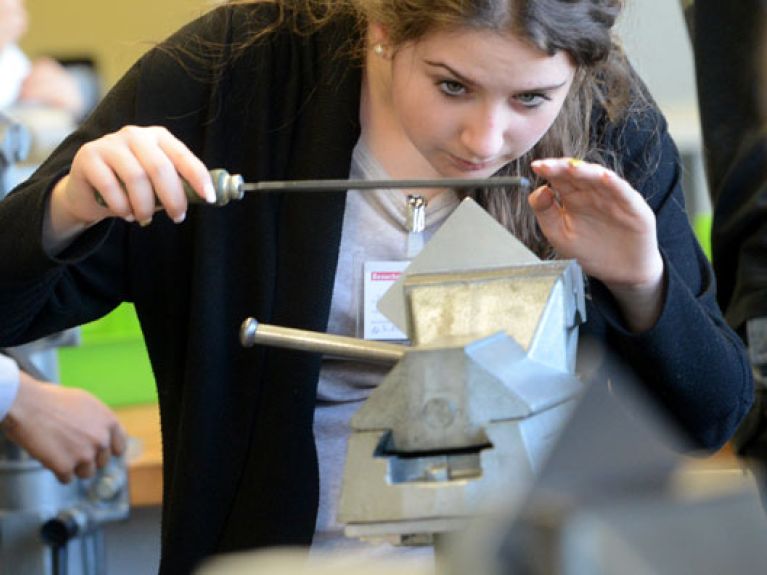Role swap on Girls’ Day and Boys’ Day
Future Day opens new job perspectives to girls and boys.

Girls handle chemicals, melt metal with a soldering iron, programme computer software. Their male classmates play with children, care for elderly people and comb one another’s hair. Lest this remain only wishful thinking, Germany has launched Girls’ and Boys’ Day, as the official subtitle of the project reads. Girls and boys attending grades five to ten try their hand at a profession in which there are few male or female trainees. The aim of the project, funded by the Federal Ministry of Education and Research and the Federal Ministry for the Family Affairs, Senior Citizens, Women and Youth, is to awaken interest in certain professions and counter the shortage of skilled labour.
Girls in IT, boys in social professions
For girls, the project is mainly about industries such as IT, skilled crafts and trades, science and technology. Boys, on the other hand, try out on Boys’ Day chiefly social, educational and nursing professions – areas, that is, in which skilled male personnel and caregivers are sought. The thirteen year-old Mark Schneider from Hiddenhausen in North Rhine-Westphalia spent Boys’ Day 2013 in a youth centre. After an icebreaker session and games, he and other young people put their cooking skills to the test and answered questions about, for example, the boiling point of water or danger symbols. Boys’ Day, says Mark, was a lot of fun for him, “but I don’t necessarily want to become a youth care worker”. He rather fancies instead a career as a race driver.
With Nele Rosenberger the initiators’ plan worked well. Along with more than 100,000 other girls, she immersed herself on Girls’ Day in the male-dominated work world of technology, science and IT. The fifteen year-old pupil at the Count Stauffenberg Grammar School in Osnabrück looked behind the scenes of industrial robotics for a day. Nele visited a project of the Gender Equality Office of the University of Osnabrück and was allowed, along with other girls, to programme a robot. “We taught him, for example, to find his way through a maze.” She was so enthusiastic about this tryout that she signed up for computer science in the new school year. “Without Girls’ Day, I probably wouldn’t have taken this decision”, she says.
Girls’ Day and Boys’ Day, 27 March 2014

